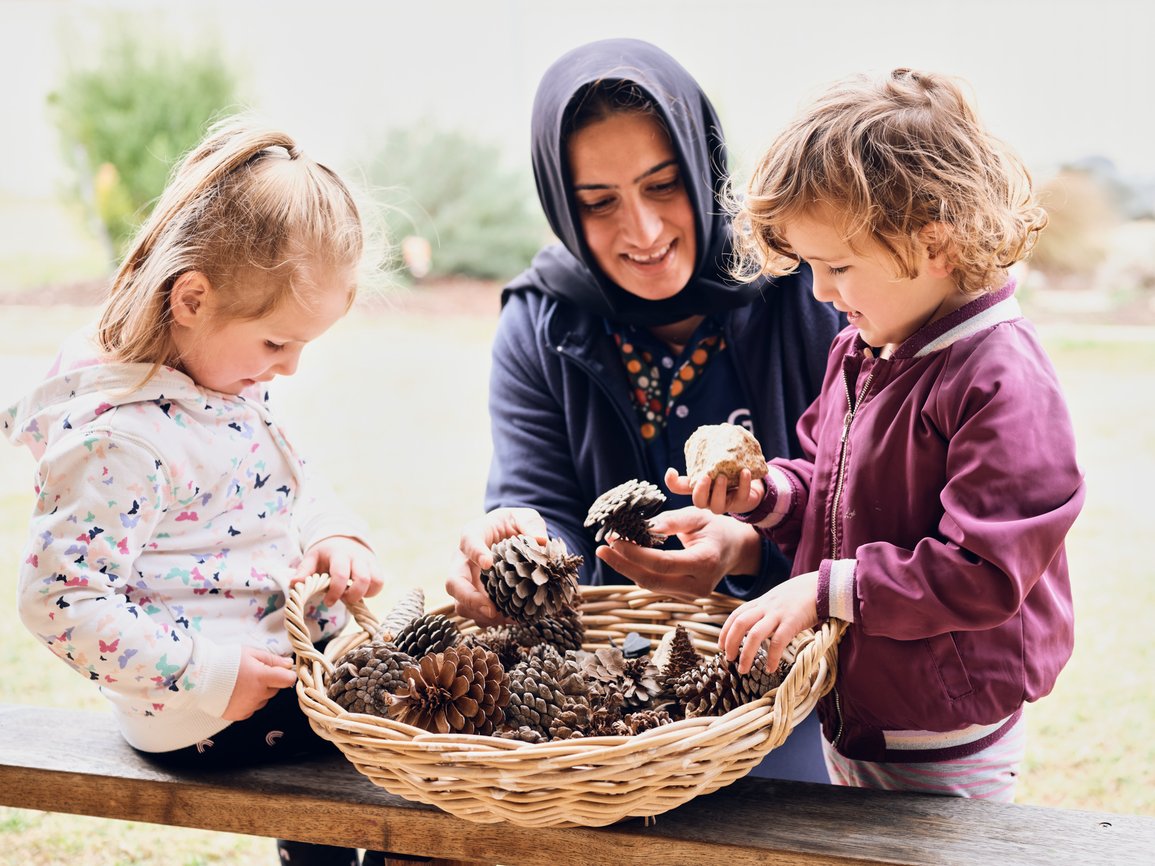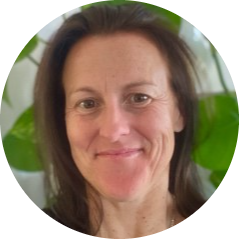An interview with Dr Catherine Jones
Dr Catherine Jones is the Director of Mia Mia Child and Family Study Centre and an academic in the School of Education, Macquarie University. Catherine has worked in the early childhood sector for over 20 years and holds extensive experience in teaching and leadership. Catherine’s PhD research has focused on workplace wellbeing in the context of an early childhood centre, and we are beyond excited that Catherine will be a keynote speaker at the Gowrie NSW Wellness Day in February.
Jessica Horne-Kennedy recently asked Catherine some questions about the focus of her keynote presentation and what attendees can learn from attending.
First of all, can you share a little about who you are, where you are from and how you came to be interested in researching this area of early childhood practice?
Sure, so I have wanted to be a teacher since I was little. I used to set up our playroom with a blackboard and make my sister and friends be the students. I did work experience at school in a preschool and straight out of school studied at Newcastle University. I have worked in Long Day Care centres, Preschools, creches in ski resorts in Canada and New Zealand, and in an international early childhood school in Bangkok.
For me personally, I enjoy change and challenge, so I started a postgraduate degree in Early Childhood and did casual work for a year. This experience gave me insight into a wide range of centres with a huge disparity in quality. I saw centres that were amazing, and I saw centres with dire working conditions and toxic relationships between staff, where educators had almost zero programming time and worked with the bare minimum of staff.
In my own full-time positions, I was lucky to work in quite high-quality centres. Some of the positives were having a stable team, working in a room with above ratios so I could spend quality time with children, mentoring my room team, and having good relationships with the children, families and my team. However, there were things I felt could have been better- I craved someone to mentor me in the centre but as an experienced ECT or even as a new graduate these opportunities were not offered, and I craved a high level of professional dialogue. I also craved autonomy and wanted to try out innovative practices but often found a brick wall from management when I tried to implement more ‘out there’ ideas. These experiences left me discouraged and somewhat unfulfilled.
So, with all of this, I became increasingly interested in job satisfaction and that is where I began my research journey, completing a Masters in Research at Macquarie University on job satisfaction. Through this research, the more holistic concept of workplace well-being emerged, and I moved on to my PhD and began focusing on that.

The words ‘wellness’ and ‘wellbeing’ are so often used in the early education and care context and there are many different interpretations. If you had to tell someone in a few words what wellbeing means to you – what would you say?
Well-being to me means feeling good about going to work, having healthy relationships, experiencing feelings of inspiration, feeling cared for, and feeling like you belong in a centre and that you are making a difference in your work.
In your keynote, you will discuss the idea of creating a ‘flourishing’ centre through caring leadership and self-care. Can you share some of the theorists or philosophers that you have explored that underpin the idea of ‘caring leadership’?
Put simply, flourishing is when you have positive emotions, positive psychological functioning, and positive social functioning, most of the time. Martin Seligman is one theorist I draw heavily on- he developed the PERMA model which includes five key factors to create a flourishing life- positive emotions, engagement, relationships, meaning, and accomplishments. I also draw on Richard Ryan and Edward Deci’s Self Determination Theory in most of my work. They identify three psychological needs that when met support well-being; these are, autonomy, competence, and relationships. My research also led me to look at Nodding’s Ethics of Care theory. With each of these theories you can see the overarching theme of relationships, and I strongly believe we cannot have healthy relationships without care embedded in our interactions with each other.
The past few years and the present climate we work in is both complex and challenging for many reasons. For those leading our early education and care environments what do you think is one important benefit (that may help navigate some of these challenges) from attending a day like this one?
Yes, many of the challenges we are experiencing now are not new, but they have been severally exacerbated with Covid and other factors. I think now most leaders are struggling with the absolute basics of being able to staff their centres or being a room leader without a stable team. I know this is hard, but I think a day like this wellness day will highlight that we can have some control over how we work and our well-being and that is important, how we can create strong relationships with our team, we can engage in self-care, we can be optimistic and hopeful, we can network- we can still flourish. However, I think we need to be gentle on ourselves and our teams, perhaps allowing ourselves more time to finish projects, or perhaps creatively think about how we can reduce workload whilst this context persists.
What are you most looking forward to sharing with the group who attends ‘Especially for You’ in February?
I really want to share my model of workplace well-being and some really practical strategies for supporting well-being.
Join Dr Catherine Jones for her keynote presentation at the Gowrie NSW Wellness Day in February 2023!
 About the Author
About the Author
Dr Catherine Jones is the Director of Mia Mia Child and Family Study Centre and an academic in the School of Education, Macquarie University. Catherine has worked in the early childhood sector for over 20 years, with extensive experience in teaching and leadership, and is soon to complete her PhD in educator well-being. Catherine is currently working on several research projects including, the 2021 National Quality Framework Approved Learning Frameworks Update project, through ACECQA and a tripartite of Macquarie University, Queensland University of Technology & Edith Cowan University








